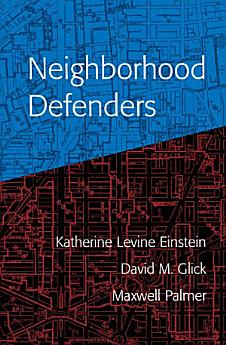Neighborhood Defenders: Participatory Politics and America's Housing Crisis
Dec 2019 · Cambridge University Press
5.0star
1 reviewreport
Ebook
233
Pages
reportRatings and reviews aren’t verified Learn More
About this ebook
Since the collapse of the housing market in 2008, demand for housing has consistently outpaced supply in many US communities. The failure to construct sufficient housing - especially affordable housing - in desirable communities and neighborhoods comes with significant social, economic, and environmental costs. This book examines how local participatory land use institutions amplify the power of entrenched interests and privileged homeowners. The book draws on sweeping data to examine the dominance of land use politics by 'neighborhood defenders' - individuals who oppose new housing projects far more strongly than their broader communities and who are likely to be privileged on a variety of dimensions. Neighborhood defenders participate disproportionately and take advantage of land use regulations to restrict the construction of multifamily housing. The result is diminished housing stock and higher housing costs, with participatory institutions perversely reproducing inequality.
Ratings and reviews
5.0
1 review
About the author
Katherine Levine Einstein is Assistant Professor of Political Science and Faculty Fellow at the Initiative on Cities at Boston University.
David M. Glick is Associate Professor of Political Science and Faculty Fellow at the Initiative on Cities at Boston University.
Maxwell Palmer is Assistant Professor of Political Science, Faculty Fellow at the Initiative on Cities, and Junior Faculty Fellow at the Hariri Institute for Computing at Boston University.
Rate this ebook
Tell us what you think.
Reading information
Smartphones and tablets
Install the Google Play Books app for Android and iPad/iPhone. It syncs automatically with your account and allows you to read online or offline wherever you are.
Laptops and computers
You can listen to audiobooks purchased on Google Play using your computer's web browser.
eReaders and other devices
To read on e-ink devices like Kobo eReaders, you'll need to download a file and transfer it to your device. Follow the detailed Help Center instructions to transfer the files to supported eReaders.




